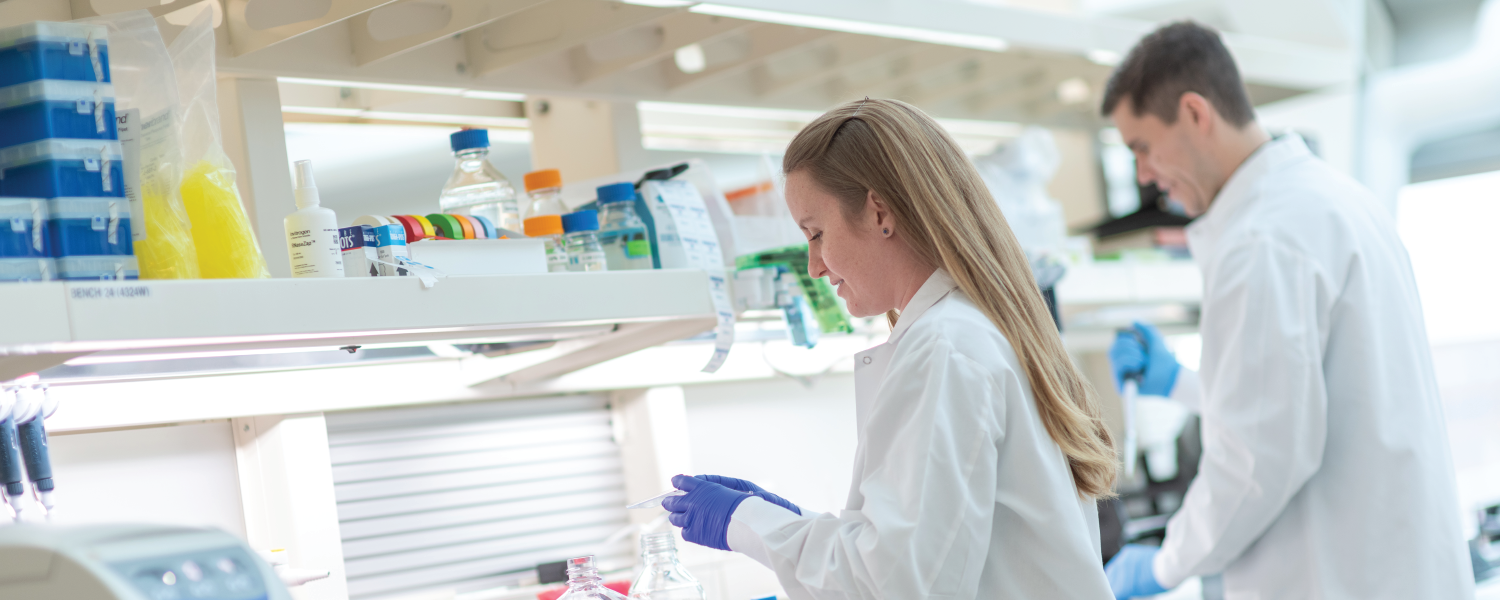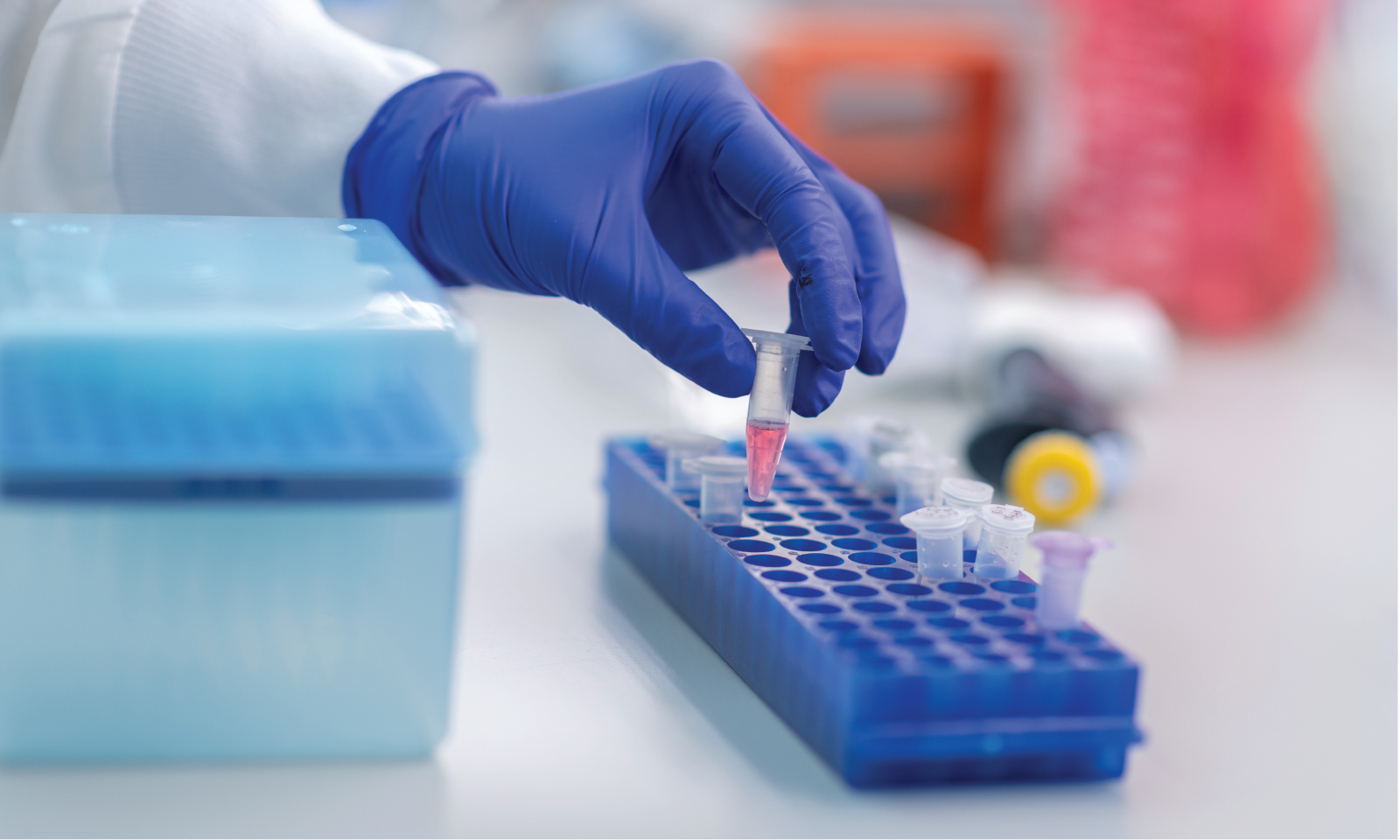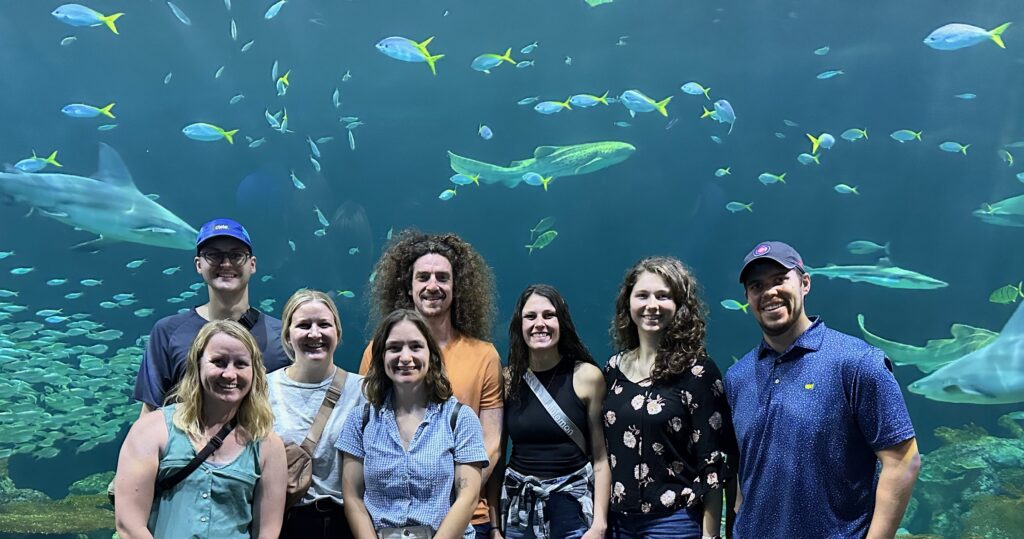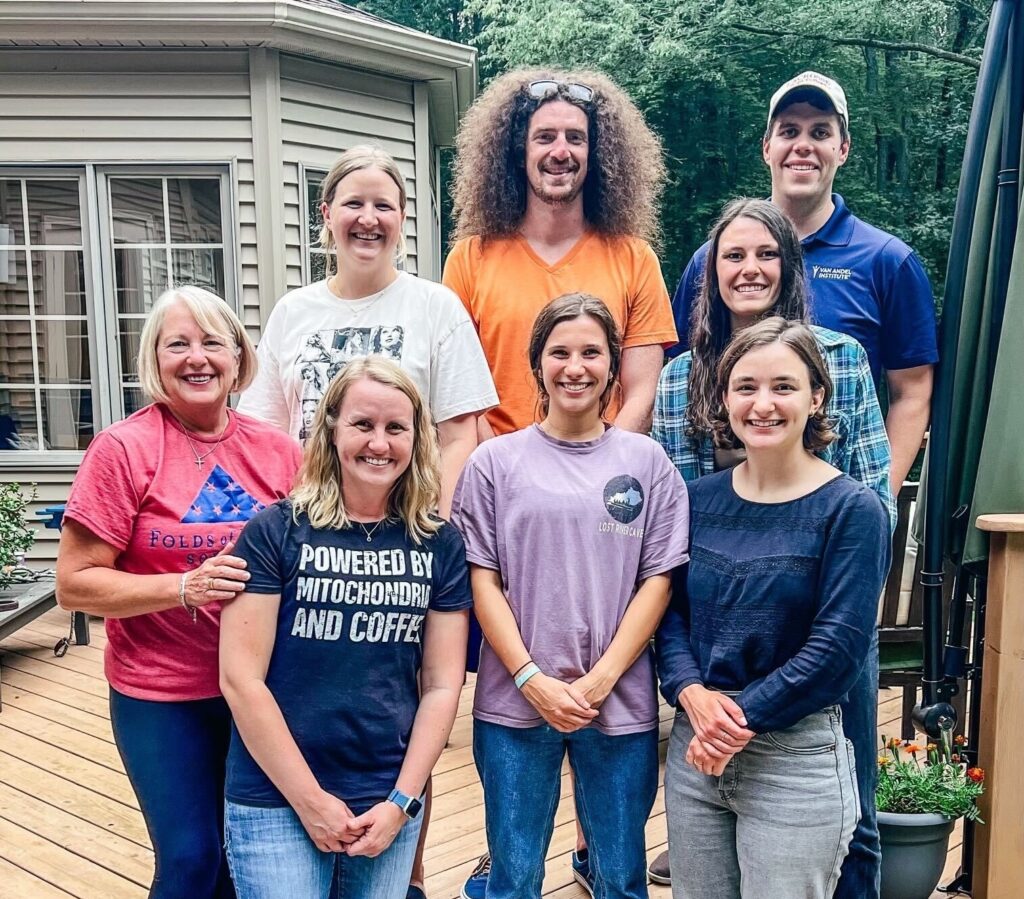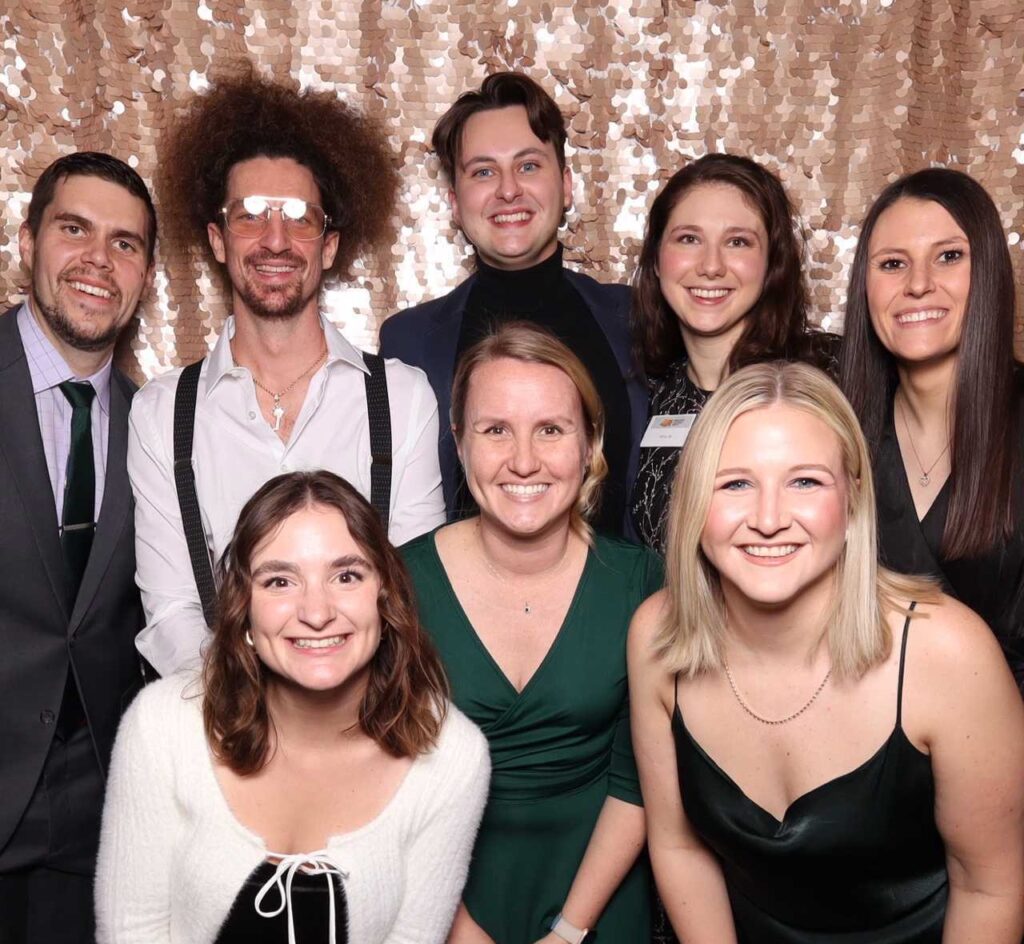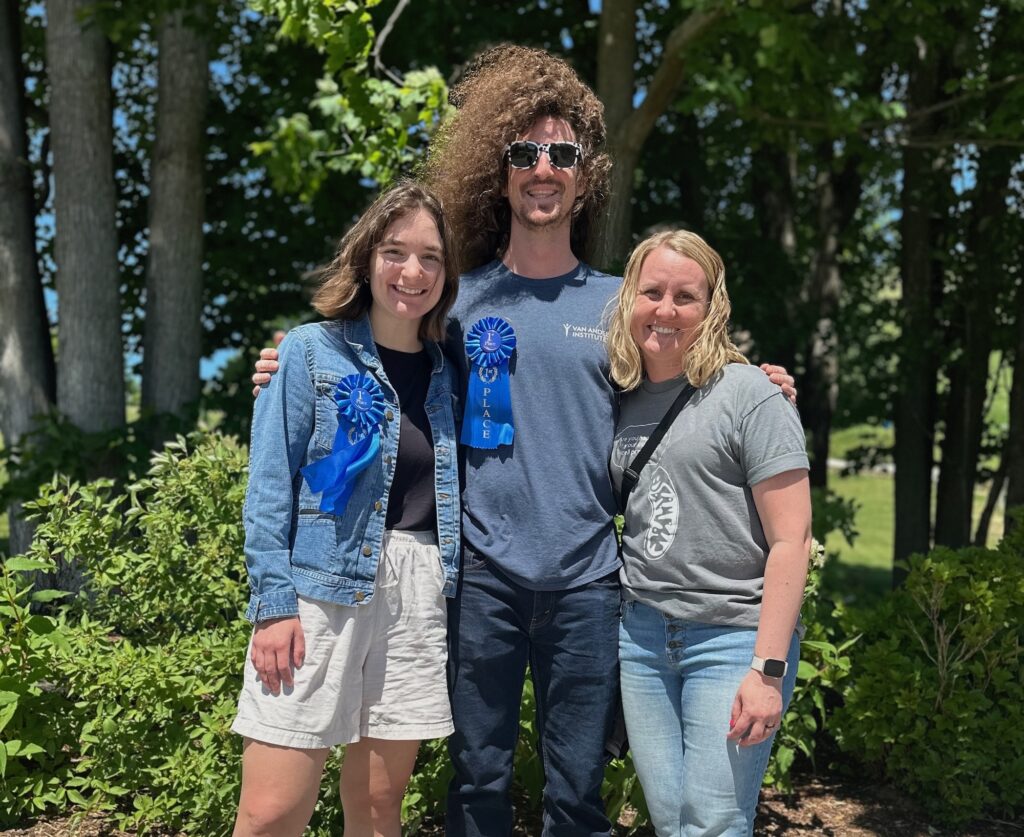Nowinski
Laboratory
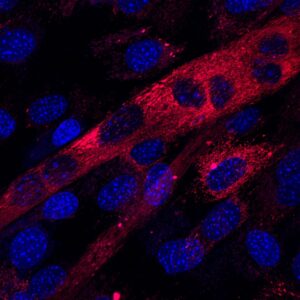
Mitochondria and Metabolism
To many, this is a familiar phrase: mitochondria are the powerhouses of cells.
But mitochondria are so much more than that. In the Nowinski Lab, we’re working to understand how mitochondria work in intricate detail, with a focus on the mitochondrial fatty acid synthesis (mtFAS) pathway.
Although we classically think of mitochondria as organelles that break down fats and other nutrients and convert them into the energy needed to fuel healthy cellular function, the mtFAS pathway actually does the reverse — it’s a mitochondrial pathway that builds fats rather than breaking them down. So why have cells seemingly paradoxically retained this biosynthetic pathway in the mitochondria? Our work revealed a novel regulatory mechanism through which mtFAS activity controls and integrates nearly every facet of mitochondrial function, in an acetyl-CoA dependent manner. In doing so, this pathway helps mitochondria respond to changing energy needs in the body by coordinating nutrient availability with cellular respiratory capacity.
We’re also interested in how the mtFAS pathway influences the fate of skeletal muscle cells. Muscle cells use a lot of energy and, therefore, require a large number of mitochondria; cells that are deficient in mtFAS enzymes can’t build new mitochondria and also fail to form differentiated muscle fibers in culture. We want to understand how mitochondria shift their activity to meet cells’ ever-changing needs, and how this process feeds back to control other cellular functions.
Problems with mitochondria have been linked to a host of disorders, including cancer, diabetes and many diseases of aging. By understanding how the body manages energy production, we hope to lay the foundation for new ways to enhance health and combat disease.
Join Our Team
If you are interested in any postdoctoral opportunities with the lab, please contact Dr. Nowinski.
Recent News & Press
Learn MoreOur Impact
We’re raising thousands to save millions.
We’re turning hope into action for the millions of people around the world affected by diseases like cancer and Parkinson’s. Find out how you can help us make a difference.
- 122 peer-reviewed papers published in 2024, 63 of which were in high-impact journals
- 15 VAI-SU2C Epigenetics Dream Team clinical trials launched to date
- 10 clinical trials co-funded by VAI & Cure Parkinson's (out of 41 total International Linked Clinical Trials Program trials)
Sara Nowinski, Ph.D.
Assistant Professor, Department of Metabolism and Nutritional Programming
Areas of Expertise
Metabolism, mitochondria, bioenergetics, lipid metabolism, cellular respiration, cancer
Biography
Dr. Sara Nowinski is an expert in mitochondrial biology and metabolism. She earned her Ph.D. in pharmaceutical sciences from the University of Texas at Austin, where she investigated the role of mitochondrial respiration and cancer metabolism. In 2014, she accepted a postdoctoral fellowship in the lab of Dr. Jared P. Rutter at University of Utah School of Medicine. While there, she developed and led a project that explored mitochondrial fatty acid synthesis (mtFAS) and metabolism. Her research revealed groundbreaking new insights into the significance of the mtFAS system, and reignited interest in studying this critical pathway. In 2021, she joined Van Andel Institute’s Department of Metabolism and Nutritional Programming as an assistant professor.
Dr. Nowinski has earned numerous accolades for her scholarship, including prestigious postdoctoral fellowships from the American Cancer Society, the United Mitochondrial Disease Foundation and the Pharmaceutical Researchers and Manufacturers Association.
SELECTED PUBLICATIONS
Chen XW, Don AS, Fedorova M, Harayama T, Krahmer N, Nagata S, Narayan P, Nicholas D, Nowinski SM, Saheki Y, Semenkovich CF, Zhao X, Zou Y. 2025. Time for lipid cell biology. Nat Cell Biol 27(2):169–174.
Brothwell MJ, Cao G, Maschek JA, Poss AM, Peterlin AD, Wang L, Baker TB, Shahtout JL, Siripoksup P, Pearce QJ, Johnson JM, Finger FM, Prola A, Pellizzari SA, Hale GL, Manuel AM, Watanabe S, Miranda ER, Affolter KE, Tippetts TS, Nikolova LS, Choi RH, Decker ST, Patil M, Catrow JL, Holland WL, Nowinski SM, Lark DS, Fisher-Wellman KH, Mimche PN, Evason KJ, Cox JE, Summers SA, Gerhart-Hines Z, Funai K. 2025. Cardiolipin deficiency disrupts electron transport chain to drive at steatohepatitis. bioRxiv.
Steiner KK, Young AC, Patterson AR, Sugiura A, Watson MJ, Preston SEJ, Zhelonkin A, Jennings EQ, Chi C, Heintzman DR, Pahnke AP, Toudji YT, Hatem Z, Madden MZ, Arner EN, Sewell AE, Blount AK, Okparaugo R, Fallman E, Krystofiak ES, Sheldon RD, Gibson-Corley KN, Voss K, Nowinski SM, Jones RG, Mogilenko DA, Rathmell JC. 2025. Mitochondrial fatty acid synthesis and MECR regulate CD4+ T cell function and oxidative metabolism. J Immunol 214(5):958–976.
Norden PR, Wedan RJ, Preston SEJ, Canfield M, Graber N, Longenecker JZ, Pentecost OA, McLaughlin E, Hart ML, Nowinski SM. 2025. Mitochondrial phosphopantetheinylation is required for oxidative metabolism. Metabolism.
Wedan RJ, Nowinski SM. 2025. Powering the powerhouse: Mitochondrial NADPH propels oxidative metabolism. Cell Chem Biol 32(7):902–904.
Guak H, Weiland M, Vander Ark A, Zhai L, Lau K, Corrado M, Davidson P, Asiedu E, Mabvakure B, Compton S, DeCamp L, Scullion CA, Jones RG, Nowinski S, Krawczyk C. 2024. Transcriptional programming mediated by the histone demethylase KDM5C regulate dendritic cell population heterogeneity and function. Cell Rep 43(8):114506.
Ouyang Y, Jeong M-Y, Cunningham CN, Berg JA, Toshniwal AG, Hughes CE, Seiler K, Van Vranken JG, Cluntun AA, Lam G, Winter JM, Akdoǧan E, Dove KK, Nowinski SM, West M, Odorizzi G, Gygi SP, Dunn CD, Winge DR, Rutter J. 2024. Phosphate starvation signaling increases mitochondrial membrane potential through respiration-independent mechanisms. eLife.
Berg JA, Zhou Y, Ouyang Y, Cluntun AA, Waller TC, Conway ME, Nowinski SM, Van Ry T, George I, Cox JE, Wang B, Rutter J. 2023. Metaboverse enables automated discovery and visualization of diverse metabolic regulatory patterns. Nat Cell Biol 25:616–625.
Wedan RJ, Longenecker JZ, Nowinski SM. 2023. Mitochondrial fatty acid synthesis is an emergent central regulator of mammalian oxidative metabolism. Cell Metab 26(1):36–47.
Webb BD*, Nowinski SM*, Solmonson A, Ganesh J, Rodenburg RJ, Leandro J, Evans A, Vu HE, Naidich TP, Gelb BD, DeBerardinis RJ, Rutter JD, Houten SM. 2023. Recessive pathogenic variants in MCAT cause combined oxidative phosphorylation deficiency. eLife 12:e68047.
Nowinski SM, Solmonson AD, Rusin SF, Maschek JA, Bensard C, Fogarty S, Jeong M, Lettlova S, Berg JA, Morgan JT, Ouyang Y, Naylor BC, Paulo JA, Funai K, Cox JE, Gygi SP, Winge DR, Deberardinis RJ, Rutter J. 2020. Mitochondrial fatty acid synthesis coordinates mitochondrial oxidative metabolism in mammalian mitochondria. eLife 9:e58041.
Bensard CL, Wisidagama DR, Olson KA, Berg JA, Krah NM, Schell JC, Nowinski SM, Fogarty S, Bott AJ, Wei P, Dove KK, Tanner JM, Panic V, Cluntun A, Lettlova S, Earl CS, Namnath DF, Vázquez-Arreguín K, Villanueva CJ, Tantin D, Murtaugh LC, Evason KJ, Ducker GS, Thummel CS, Rutter J. 2020. Regulation of tumor initiation by the mitochondrial pyruvate carrier. Cell Metab 31(2):284–300.e7.
Nuebel E*, Nowinski SM*, Hemmis CW*, Lindsley JE. 2019. A curriculum design and teaching experience created by and for bioscience postdoctoral fellows in a medical school. Med Sci Educ.
*Co-first author
Nowinski SM, Van Vranken JG, Dove KK, Rutter J. 2018. Impact of mitochondrial fatty acid synthesis on mitochondrial biogenesis. Curr Biol 28(20):R1212–R1219.
Van Vranken JG, Nowinski SM, Clowers KJ, Jeong MY, Ouyang Y, Berg JA, Gygi JP, Gygi SP, Winge DR, Rutter J. 2018. ACP acylation is an Acetyl-CoA-dependent modification required for electron transport chain assembly. Mol Cell 71(4):567–580.e4.
Lu X, Solmonson A, Lodi A, Nowinski SM, Sentandreu E, Riley CL, Mills EM, Tiziani S. 2017. The early metabolomic response of adipose tissue during acute cold exposure in mice. Sci Rep 7(1):3455.
Riley CL, Dao CK, Kenaston MA, Muto L, Kohno S, Nowinski SM, Solmonson AD, Pfeiffer ME, Sack MN, Lu Z, Fiermonte G, Sprague JE, Mills EM. 2016. The complementary and divergent roles of uncoupling proteins 1 and 3 in thermoregulation. J Physiol 594(24):7455–7464.
Hrometz SL, Ebert JA, Grice KE, Nowinski SM, Mills EM, Myers BJ, Sprague JE. 2016. Potentiation of ecstacy-induced hyperthermia and FAT/CD36 expression in chronically exercised animals. Temperature (Austin) 3(4):557–566.
Hirasaka K, Mills EM, Haruna M, Bando A, Ikeda C, Abe T, Kohno S, Nowinski SM, Lago CU, Akagi K, Tochio H, Ohno A, Teshima-Kondo S, Okumura Y, Nikawa T. 2016. UCP3 is associated with Hax-1 in mitochondria in the presence of calcium ion. Biochem and Biophys Res Commun 472(1):108–113.
Nowinski SM, Solmonson A, Mills EM. 2015. Chewing the fat for Akt1 inhibition and oncosuppression. Mol Cell Oncol 3(2):e1102795.
Nowinski SM*, Solmonson A*, Rundhaug JE, Rho O, Cho J, Lago CU, Riley CL, Lee S, Kohno S, Dao CK, Nikawa T, Bratton SB, Wright CW, Fischer SM, DiGiovanni J, Mills EM. 2015. Mitochondrial uncoupling links lipid catabolism to Akt inhibition and resistance to tumorigenesis. Nat Commun 6:8137.
*Co-first author
Dao CK, Nowinski SM, Mills EM. 2014. The heat is on: molecular mechanisms of drug-induced hyperthermia. Temperature (Austin) 1(3):183–191.
Lago CU*, Nowinski SM*, Rundhaug JE*, Pfeiffer ME, Kiguchi K, Hirasaka K, Yang X, Abramson EM, Bratton SB, Rho O, Colavitti R, Kenaston MA, Nikawa T, Trempus C, DiGiovanni J, Fischer SM, Mills EM. 2012. Mitochondrial respiratory uncoupling promotes keratinocyte differentiation and blocks skin carcinogenesis. Oncogene 31(44): 4725–4731.
*Co-first author
Hirasaka K, Lago CU, Kenaston MA, Fathe K, Nowinski SM, Nikawa T, Mills EM. 2011. Identification of a redoxmodulatory interaction between uncoupling protein 3 and thioredoxin 2 in the mitochondrial intermembrane space. Antioxid Redox Signal 15(10): 2645–2661.
*These authors contributed equally to this work
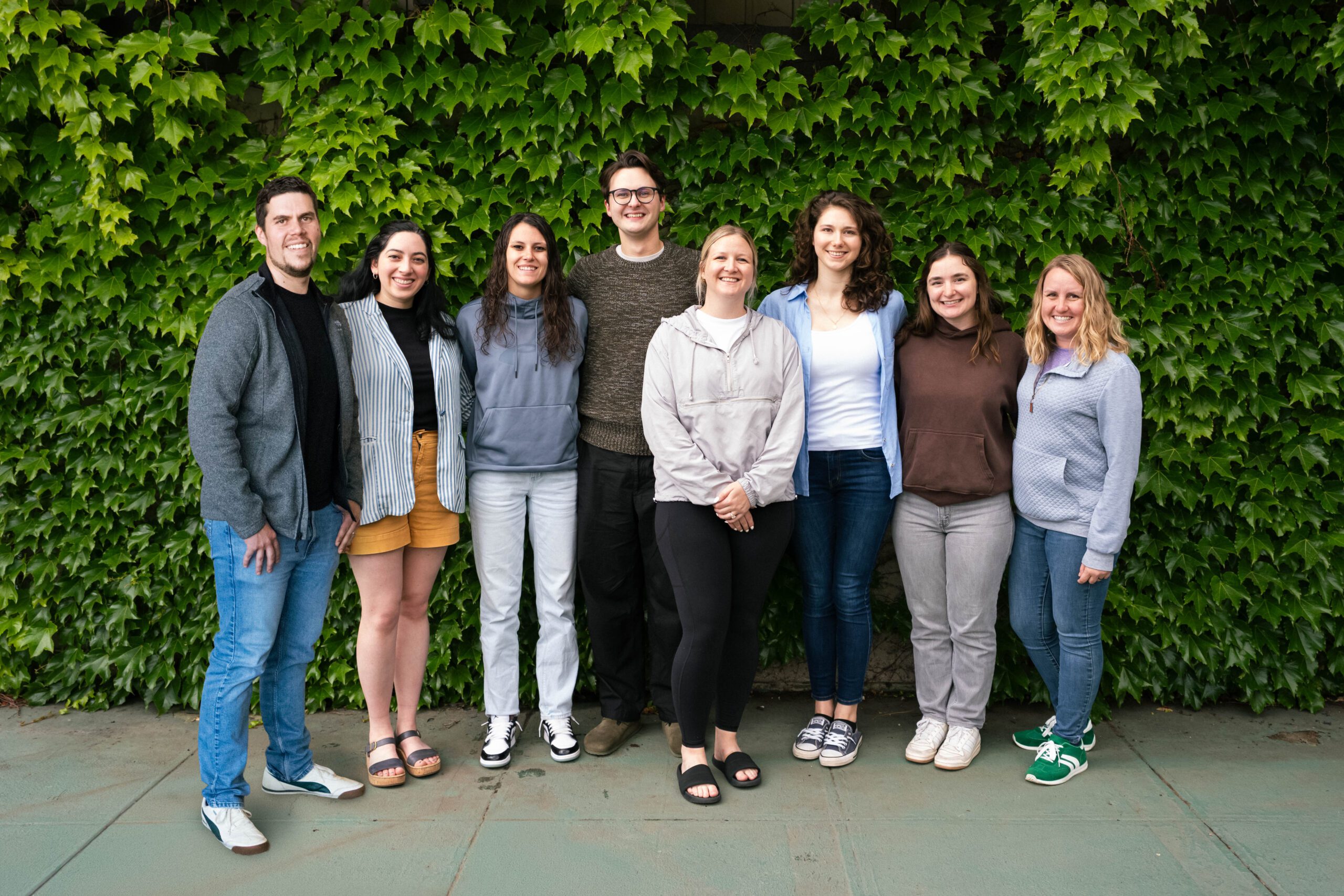
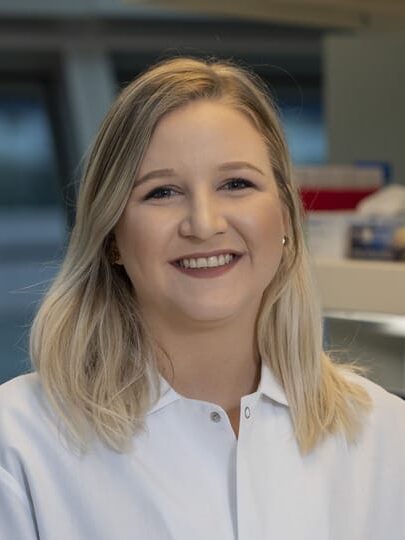
Naomi Graber
Research Technician, Department of Metabolism and Nutritional Programming


Pieter Norden, Ph.D.
Lab Manager, Department of Metabolism and Nutritional Programming




Jeanie Wedberg
Senior Administrative Assistant II

